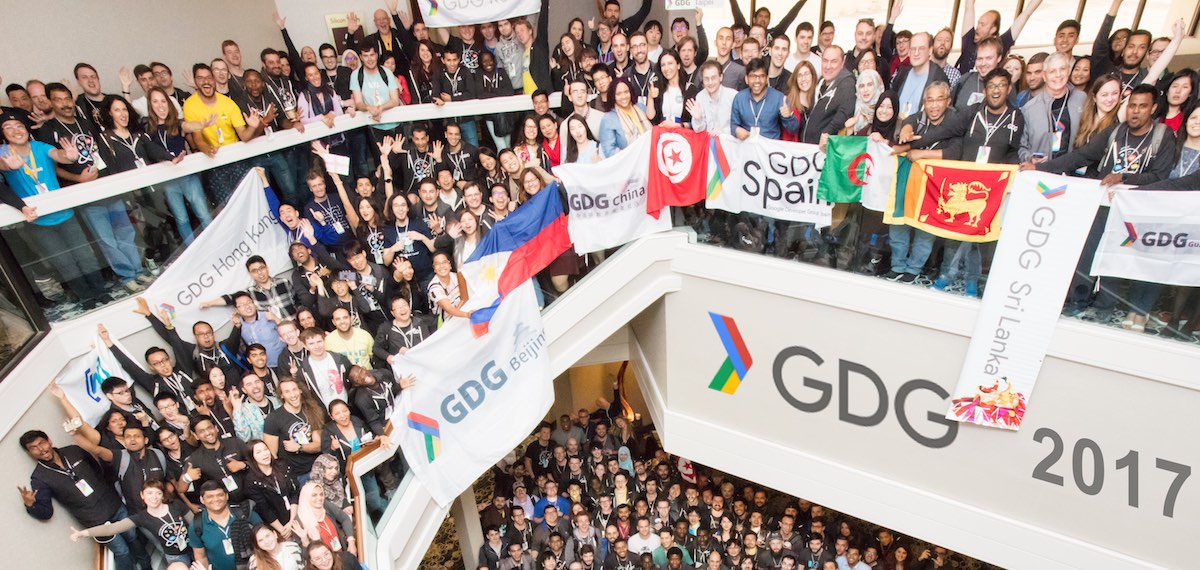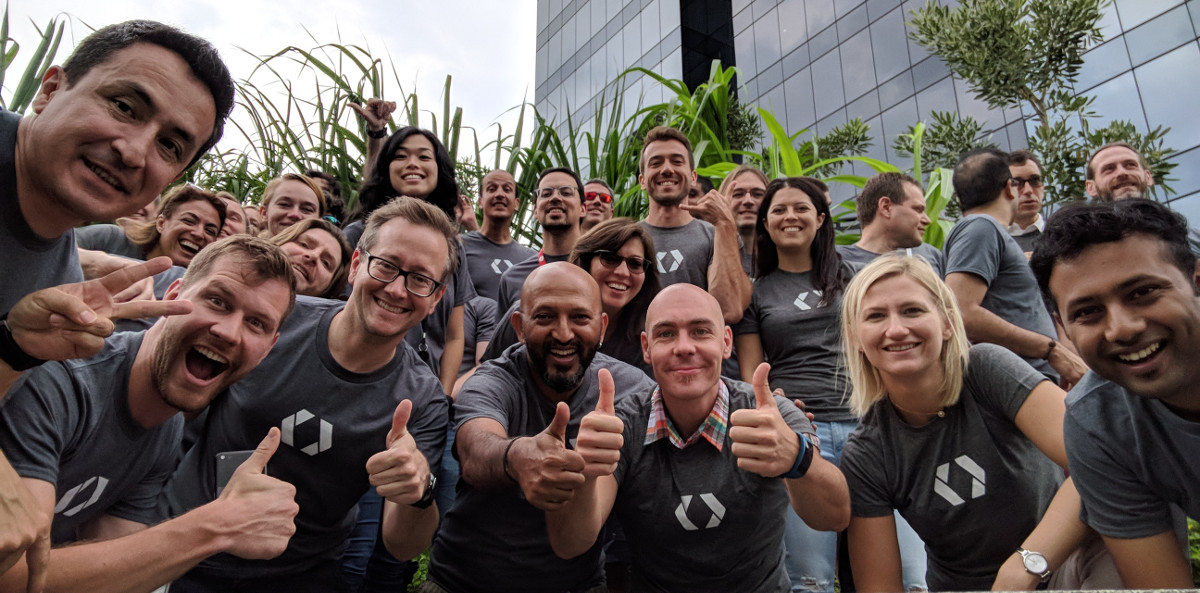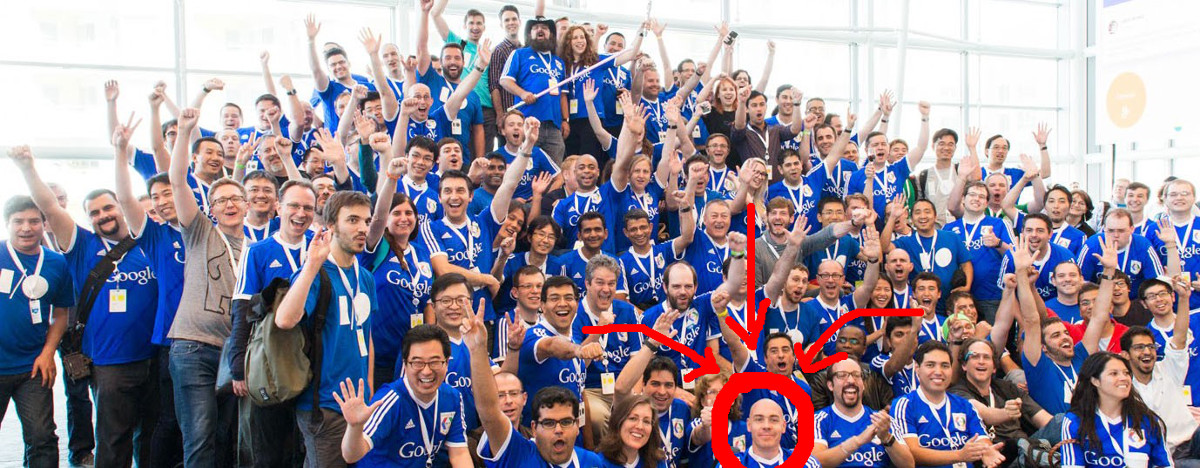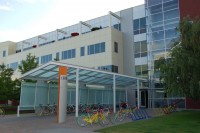Recently, I had my fifth Googleversary, meaning 5 years have been passed since I joined Google. In retrospective, it was a flash. An intense, extremely challenging, always learning, positively stressing and joyful flash. A lot has happened and I want to write down some notes on the most important learnings I’ve had.
Disclaimer: this is not a post on Google culture, there are several and more authoritative voices than mine, and the complexity of a company made by tens of thousands people all over the world doesn’t allow to have a “common culture and experience to fit them all”. This is, simply, a wrap-up of my very own peculiar journey.
I spent these 5 years in Developer Relations team we call “DevRel Ecosystem” with the mission of nurturing influencers and their communities all over the world to boost Google technology advocacy, adoption, quality, and perception. So, interacting with tech communities, startups, third-party tech conferences, universities, organising Google-own events etc. Partially a manager of community managers, partially a lot more. I often sign emails for my Italian colleagues with “Your friendly neighbourhood dev-sitter“.
Learning day by day
In DevRel-focused conferences I attended, we often define us a “community of practitioners” because we’re literally crafting our own job day after day, and very few companies have the DevRel org structure and needs Google has: definitively a job with no repetitive tasks and where personal initiative is a key element. For me in particular. I left my job as Android dev in Funambol on Friday afternoon after a mojito party with colleagues, flew to San Francisco 14 hours later, on Monday moved to Mountain View for my first day in Google for the welcome training to collect my badge and laptop. Then the second day back in San Francisco attending Google I/O, thrown into the nonsense madness of such big events, with no idea about my role there, who my team and my colleagues were, even where my manager was and how to reach him. With 5000 attendees asking me any sort of things because I was a Googler. The week later, back in Italy, during my first one-to-one call with my manager, I asked him “Now that I/O is over, what’s the next step for me?” and he replied: “Well, we hired you because you know the Italian dev ecosystem better than me, so it should be you telling me”. When the meeting ended, I banged my head on the table multiple times, thinking about my life just 12 days before, when I was an happy Android dev, shielded from the external complexity of the world by the comfortable shell where every dev “code, breath, repeat”.
So, from that second day in San Francisco onward, I’ve been exposed to a continuous and unique learning experience with lot of autonomy. Everything has been a great playground where exercise my Kaizen approach to life, to learn and improve. But it hasn’t been easy, kind of an endless and restless run, where I was alone and on the wild for the first three years, until I had the first team-mate sitting my side, sometimes a marathon but often a sprint, always with a potential stress factor behind the angle. I still enjoy it because the way I am, but I recognise is not for everyone.
Relevancy, focus and happiness
Easy to imagine, this generated struggle in my work-life harmony, especially at the beginning. Because I’m more toward the perfectionist side, I believe there is always room for improvement: in crafting the idea, organising a project around, execute it and sharing back the experience. And the cost of this perfectionism is my time. During some stressful moments, my whole day time. Luckily, two epiphany moments helped me to find an initial harmony.
First one happened when a colleague said “This company is a machine that produces more tasks than you can manage“: I understood I have to accept the fact I cannot do everything I would love to do within the full and huge spectrum of potential activities available. So, being good in the prioritise only the very relevant balls you want to juggle with and understand what is that relevant in the company context were crucial steps to grow. In DevRel org, and in Google in general, we have so many projects, opportunities, stimulus and extremely unique challenges not yet solved that, added with the positive anarchic culture of the team, it’s easy to lost the north if there is a lack of focus.
The second moment was when my first son was born. In choosing how to spend the non-working part of the day, I’ve always been driven by the approach “use your time to find happiness pursuing your passions and embracing new learning occasions outside your comfort zone“, and being a father added duties that changed the entire time balance of my day. After some try-and-make-mistakes cycles, and thanks to meditation, I understood differentiating among family, personal, work, relax etc time had no sense, that my day is a continuum and finding what’s really relevant in different contexts, over a period, and stay sharp-focused on these things only, and literally nothing else, creates the harmony I need, allowing me to don’t feel overwhelmed, but happily busy and alive. It’s impossible to catch up with everything, quality over quantity and whatever makes people around me happy is time well spent: my family first, then all the rest in no particular order, including my team members, my users, my friends, my manager, myself etc. I haven’t found the perfect harmony yet and it still happens I need to sacrifice some extra hours of sleep but, if I look back, overall life now is better than before.
Servant leadership and team culture
I started to lead a team of 6 people, more or less two years ago, and I discovered that is not an easy task, it’s time consuming and it’s also one of the most empowering experiences I’ve ever had. Leading the team, for me and probably also because of company culture, has something in common with the role of a community manager: you are there for the development of the community with no room for your personal ego; you’re successful only if the community is successful and community members are happy to be in your community; you cannot change or control community members, only guide and help them evolving with your influence and support; a sense of community (team culture) is necessary for the community to survive in the medium-long term.
Because the way I am, my team management style resonates very well with the concept of servant leadership, and the team culture is the glue that keeps us connected together. A culture where it’s OK to make mistakes, but always new ones, where we all have a clear vision, concrete goals and we run all together toward them activity after activity, where we retrospective what’s happened and plan the future all together regardless our roles or seniority, reserve a little bit of our own time to experiment with new things, disagree and commit, provide gentle feedback to others, focus on our own sweet spots and try to connect them together in order to cover as much as we can as a team, know the reasons, the core whys, we are doing what they’re doing, in order to match personal passions with team duties, lead by example.
A team where we share and discuss the ideas we have to improve and solve the projects we’re working on, because when ideas circulate, everyone can enrich them and an open and sharing culture allow to achieve more, both from results and personal growth side. It’s not easy to achieve that while we’re spread across 4 countries and 2 different time-zones, but it’s one of my main responsibilities as manager to allow circulation of these things, and the chats I have with everyone, at least one hour every week, a weekly meeting to share and plan together the next days and a 2-days in person summit three times a year, all together, have been making the job, at least until now.
Merits are assigned on the ownership and the execution of the projects and I would consider a personal failure if a person joins the team and later leaves it with no new ideas, new tools, new experiences, new perspective in its pockets. Does it means we’re all good friends? No, but we like to spend time together, to solve and work on professional needs and, sometimes, also for personal pleasure.
Among the many resources on the topics, I suggest the podcast “The Andy Stanley Leadership Podcast“, a monthly source of invaluable resources on leadership topics, and the book “The 4 Disciplines of Execution“, that helped me to align the team toward unique goals and improve ways to pursue them, quarter after quarter.
Forgiveness, charisma and data
Moving inside a corporate environment isn’t always easy, and I’ve experienced moments where I felt like chained to the ground due to other colleagues behaviours and decisions, luckily very few times during these five years. Once one of my managers told me “When you have such energy and you know what you’re doing, you should ask for forgiveness and not for permission“. It was an important lesson of humility, trust and maturity together, even if I don’t think it can work in all the companies, but Google culture may tolerate that, sometimes and if you choose carefully.
Nowadays I prefer the “influence with charisma” approach, even if it’s slower and more difficult to exercise, but allows a broader impact and when politics start getting into the environment, it’s the only way of achieving what I hope to be able to achieve.
On top of both approaches, I’ve learnt availability of data to support my opinions really can make the difference. Quoting Barksdale, “If we have data, let’s look at data. If all we have are opinions, let’s go with mine“, so having good data to use can put everyone in an advantage position. Of course collecting meaningful data is another art to master, requires discipline, it’s an ongoing process to improve every day and often not easy to keep focused on the non-vanity metrics or researches. And have a good narrative to tell others that data is equally important.
Remote working
Another element I now consider a crucial asset of my job is the possibility to remote working. I have two hours commute time daily and, even if I’m able to work the majority of this time, even if I value the fact I arrive at the office already focused on the next steps and I can dedicate extra time to cool down or finish some tasks on the way back home, even if offices in Google are, generally, among the best I’ve seen in companies, working remotely has way more value than money and time saved. Context matters, and be where I want to be, in a park breathing the blooming spring smell, relaxed at home, next to a person I care, provides an incredible flexibility everyone should be able to experience.
It doesn’t come for free, of course. First, and foremost, a proper remote working culture is required. It starts from a personal responsibility to commit your duties, be easily reachable for the people that need you (hardware equipment, bandwidth quality and reliability, time availability etc), soft skills to interact with the others over a remote conversation, team processes calibrated around this scenario and more. Google offers rooms where I enter, press a button on a display on the table / monitor and I’m connected with the other sides of the meetings: it’s fantastic to have this no-entry level barrier to interact.
Finally, a good balance between remote and office work is necessary, as remote cannot totally substitute in-person presence: the chance others can enrich what I do is simply not available when I’m far from them, coffee machine chats are really a thing, the importance of bonds with colleagues outside working topics, how quickly some questions could be solved simply going and speaking with someone.
Value diversity and have an open mind
Google has immersed me in a hugely diverse environment that can really boost everyone’s personal growth, because of a real multicultural, time-zones and countries spread workforce, where is possible to still make new discoveries after years. I don’t mean only gender diversity, but the whole set of diversities. As for remote working, simply putting together diverse people doesn’t make the magic, and there are several prerequisites needed: among the many, the perception of an open environment, in term or reciprocal respect and trust, freedom to be themselves, possibility to make mistakes, availability to receive feedback and suggestions, understanding of implicit biases we all have and how to deal with them, a personal availability to put additional care to what’s happening around us, that our opinion is simply one of the many and not always the best one, the ability to say a sincere sorry when mistakes are made.
Travelling is another great possibility I have, and inside my team is relatively easy to go everywhere in the world if there is a reasonable working reason. Of course I try to avoid serial travelling (mostly because of I have a family), but meeting colleagues where they live and, thanks to my job of manager of community managers, I can breath the local environment and meet local people, listen to them, go where they go, be a guest, not a tourist, in the local ecosystem.
Nothing more than a semi-empty mind, ready to be filled by the context and able to adapt to it, helped me growing. Because what’s around me is the mirror reflecting, so shaping, who I am.
Put on user’s shoes
Every DevRel role depends on the external users and their (hopefully) happy relation with your products: I value this continuous exposition to the external world as an incommensurable treasure. It fosters diversity, keeps my mind open, allow a flow of new ideas. Even if one of Google’s mantra is “User first”, I’ve sometimes interacted with people maybe too closed in their own bubbles. And this is one of the biggest differences between a well-established company mindset and a successful startup mindset I’ve discovered: startup is forced to always have users and their needs in mind, and the rent to pay the roof covering employee’s heads depends on this ability to understand the customer and speed in execution thanks to a razor-sharp focus. In a well-established company, instead, generally that hurry is less perceived because there is a fix salary, and sometimes a manager / the team / the org / internal complexity / processes could become “the ultimate customer”. After all, putting on user’s shoes is not trivial and exit from the comfort zone requires effort, so making assumptions or serve a different master than the user is the quickest and less painful way. In short, be lean.
Luckily, interacting with “influencers” of the tech ecosystem, like community members, conference organisers, experts in their own tech field etc, remembers me where my attention should focus, my last goal in everything I decide to do, how bad is to expose them internal company complexity, to assume nothing, the many learning occasions this “exercise” can provide me. I’ve found this attention to put myself in someone else’s shoes extremely useful also when dealing with colleagues, friends, family, random people: everywhere there is human interaction.
The one big fight I had. And it was with myself
I want to close this long introspective journey with the most traumatic experience I had in these 5 years: it was about the switch I did from being a developer to cover a Developer Relations role, dealing with communities, project management and manage a team. After the initial period, where the lack of time to code was well surrogated by all the unicorns and rainbows of a new job in Google, I started to realize weeks could pass without me writing a single line of code. I was warned about that, nevertheless was a huge internal conflict to deal with. I wrote my first program when I was 13, I started my first full time job as developer at 19 and I moved to Google when I was 33: nothing less than 20 years dedicated to the art of coding. If you’re passionate about development, you know it’s not a 9to5 job. It is, instead, a passion, maybe even a curse, a delicious curse to deal with, because we’re all happy to pay such high time and commitment tribute in exchange of the positive emotions derived from the happiness of creation, the satisfaction of bringing order and logic where chaotic and unmanaged information was, the pleasure to discover new stuffs and challenge ourselves using them to improve, the pride in teaching others about our craftsmanship. And after 20 years of days and nights immersed in this world, shaping and measuring my professionality and myself through the lens provided by it, switch and reinvent who and what I am was deadly hard.
How I solved it? First, it was something I wanted, it wasn’t an unexpected shift. Then, I’ve applied introspection, a development plan and discipline: I first understood coding wasn’t the only thing able to keep me happy, but I’ve found sweet spots in other areas of my job with positive and impactful effects on me, in particular dealing with communities and supporting them. Then I posed myself the question: “How do I see me in 5 to 10 years from now, both personal and working life, maybe still in Google, maybe not?“. Again, lot of introspection through meditation, and I was finally able to figure-out a satisfying and actionable reply. Now, it’s just a matter of discipline to keep connecting the dots between what I’m now and that picture of myself in the future. And, in the meantime, smile, breath, live and help others to smile too. Let’s see in five year from now ;)
If you’re curious about my life in Google, there are other posts to read.
Like this:
Like Loading...



